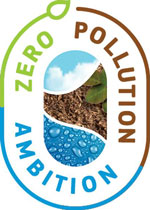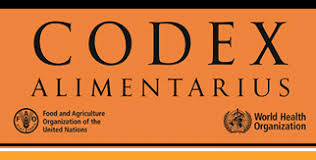Advocacy
Prevent: our right to live in healthier environments
Air quality #CleanAir

 2020 saw remarkable milestones for policy on air quality at the EU and national levels, including the EU’s Zero Pollution Action Plan (ZPAP), a framework to achieve zero pollution in air, soil, and water across the EU leading to the review of the EU Ambient Air Quality Directives (AAQDs). Within both processes, EFA called for the full alignment of the EU standards on air quality with the WHO air Quality Guidelines.
2020 saw remarkable milestones for policy on air quality at the EU and national levels, including the EU’s Zero Pollution Action Plan (ZPAP), a framework to achieve zero pollution in air, soil, and water across the EU leading to the review of the EU Ambient Air Quality Directives (AAQDs). Within both processes, EFA called for the full alignment of the EU standards on air quality with the WHO air Quality Guidelines.
Other developments addressing air quality included the new EU Climate Adaptation and the Farm-to-Fork strategies. With respect to these developments, EFA highlighted the importance of tackling airborne pollen and the impact of extreme events such as wildfires and heatwaves for people living with allergy, asthma, and COPD. Additionally, EFA stressed the importance of addressing the impact of agricultural emissions on air quality. All these three processes are to be adopted in 2021.

The EU also discussed their building stock and published the Renovation Wave strategy to improve building conditions across Europe. This provided EFA an opportunity to highlight the importance of healthy indoor environments and to advocate for the introduction of health considerations in renovation policies, including the adoption of a mandatory Indoor Air Quality Performance certificate. EFA has long sought a paradigm shift giving way to parity of esteem for indoor air quality. These consultations represent a crucial step forward and the culmination of extensive collaboration between patients, patient organisations and healthcare professionals.

At the international level, and as part of the External Review Group, EFA reviewed the update of the World Health Organisation (WHO) Air Quality Guidelines, foreseen to be adopted in June 2021. We urged WHO to assess both morbidity and mortality in its calculations and presented the latest scientific data supporting the need to address pollen and tobacco-related smoke as ambient pollutants.
Tobacco


Tobacco consumption remains the largest avoidable health risk in the European Union, responsible for 700,000 premature deaths annually. The increasing popularity of new tobacco products and e-cigarettes is undermining the effectiveness of smoke-free environments measures. Meanwhile, according to the latest Eurobarometer, exposure to second-hand smoke is still endemic in many EU countries.
Stressing the need to reduce health risks, ensure better indoor air-quality and reduce second-hand smoke exposure, EFA supported actions against tobacco in many EU policies, including the promising Europe’s Beating Cancer Plan, the EU Renovations Wave, and the Zero Pollution Action Plan. We also advocated for the full implementation of the WHO Framework Convention on Tobacco Control in EU Member States.
The key milestone for 2020 was the consultation of the European Commission Scientific Committee on Health, Environmental and Emerging Risks (SCHEER) on electronic cigarettes. In close coordination with the European Network on Smoke Prevention, of which EFA is a full member, EFA highlighted evidence linking e-cigarettes with lower lung and respiratory health, poorer indoor air quality, and the need for the commercialisation of e-cigarettes to be regulated in the same way as tobacco products. The results will inform the implementation report of the European Commission on the Tobacco Products Directive, due to be published by mid-2021.
Food labelling

Food allergy bears a serious burden for patients and their carers. It not only poses severe health risks linked to potential life-threatening allergic reactions, but also causes social, emotional, and economic limitations. In 2020, EFA continued to advocate for timely and accurate information through allergen labelling, a key tool to protect the well-being of patients.
To build on our 2019 FoodDETECTives project, EFA called for a more comprehensive approach to allergen information, including harmonised use of Precautionary Allergen Labelling (PAL) and the pressing need for mandatory training on allergen management for staff in food production and service industries. To highlight patients concerns on PAL, we worked closely with Members of the European Parliament who sent two EP Written Questions to the European Commission, stating the current situation, and calling for action via the framework of the Farm-to-Fork Strategy and future legislation.
EFA also represented food allergy patients in the Quantitative Risk Assessment Stakeholder Group, hosted by the International Life Sciences Institute Europe (ILSI-Europe), to help develop a guidance on the application of allergen risk assessment in food.
As an accredited stakeholder of the European Food Safety Authority (EFSA), EFA followed the work of the agency closely regarding an evolved stakeholder engagement framework. EFA was also selected as a member in the EFSA Allergenicity Stakeholder Consultation Group working on Genetically Modified Organisms (GMOs), to provide input on EFSA’s scientific work.
Another DG SANTE consultation on food safety, allergies and food waste gave EFA the opportunity to discuss the “food safety culture’’ concept, and the pressing need for mandatory training on allergen management for staff beyond commercial Food Business Operators.

At the international level, EFA followed closely the work of the Codex Alimentarius (CAC) on food hygiene and labelling, providing inputs in several consultations. Notably, EFA participated in the consultation on a Code of Practice on food allergen management for food operators, and in the annual CAC commission meeting, bringing forth the need to harmonise PAL based on quantitative risk assessment.
Chemicals

Chemicals are present in the air we breathe, the clothes we wear, and the products we use daily. However, they may also bear risks to people living with skin or respiratory conditions. In 2020, EFA emphasised the necessity of healthy living environments in chemicals policy including updates in REACH, the key regulation governing chemicals in the EU, in our advocacy work with the agency and in our call for healthier renovation plans.
In the European Commission consultation on the Renovation Wave, EFA called for measures to minimise exposure to hazardous chemicals in workplaces. We also contributed to the EU consultation on the Construction Products Regulation, asking for the introduction of health-related criteria to prevent harmful emissions from construction materials, thus enabling a healthy indoor environment for all. The Regulation will be revised within the Renovation Wave plans.
 As official stakeholder to the European Chemicals Agency (ECHA), EFA continued to represent the voice of allergy and airways diseases patients. We brought the needs of patients with skin allergies to a key meeting of ECHA’s Socio-economic Assessment Committee that discussed the restriction of over 1,000 skin sensitisers in textile and leather products.
As official stakeholder to the European Chemicals Agency (ECHA), EFA continued to represent the voice of allergy and airways diseases patients. We brought the needs of patients with skin allergies to a key meeting of ECHA’s Socio-economic Assessment Committee that discussed the restriction of over 1,000 skin sensitisers in textile and leather products.
EFA was also present at a European Commission Roundtable meeting on fragrance allergen labelling in cosmetics, advocating for clear, on-pack information of all fragrance allergens recognised by the EU.
Lastly, EFA took part in two key EU-funded projects examining human exposure to chemicals: The Advisory Board of the European Human Exposome Network (EHEN), and the Annual Stakeholder Meeting of the Human Biomonitoring for EU project (HBM4EU).
